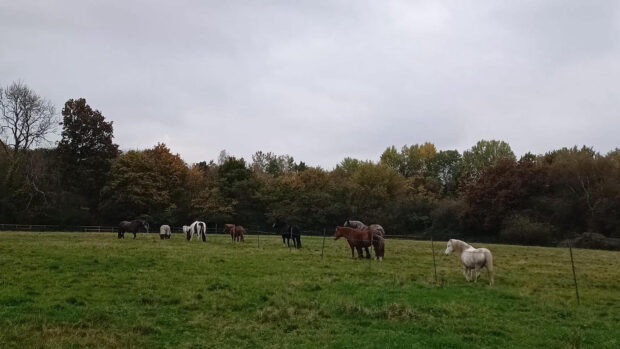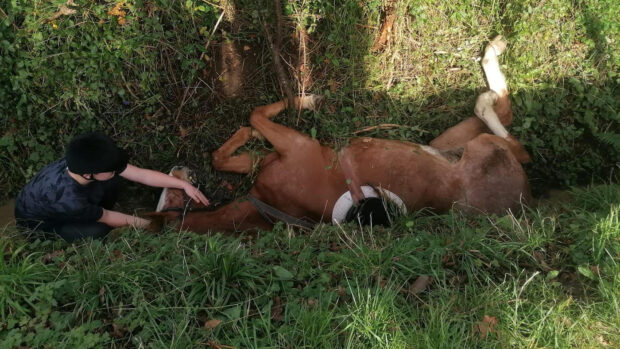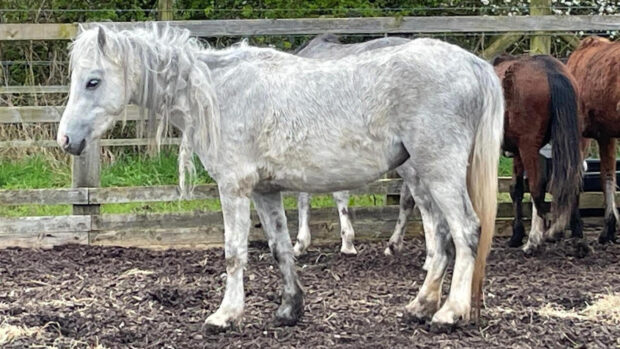Rescuers are urging owners to check their fences following a spate of emergency calls to horses that have escaped from their fields and needed rescuing after getting stuck.
South Wales Fire and Rescue Service (SWFRS) has been called to 10 horse rescues over the past four months. All these horses were uninjured.
These have involved equines stuck in ditches, with many also submerged in water.
Most recently, SWFRS firefighters rescued a horse from a river in Peterstone Wentlooge, near Newport, in water up to his neck.
Crews from Ely and Duffryn responded to the call, which came in on 21 March, and managed to safely free the horse within an hour.
The other rescues have taken place in Cardiff, Rhondda Cynon Taf and Newport. SWFRS sent specialist appliances from its Bridgend, Ely and Malpas stations to support other firefighters safely rescue animals.
RSPCA Cymru frequently assists firefighters in callouts such as these and helps decide whether a vet is needed.
“RSPCA Cymru continues to urge equine owners to check their animals, ideally, twice each day, to help ensure they are safe and out of harm’s way,” said a spokesman for the charity.
“By checking fences, gates and perimeters of paddocks, owners can help prevent their horses straying into areas of danger.”
He added the charity is “exceptionally grateful” for the fire service’s support in rescuing equines.
Article continues below…
You may also be interested in:

‘The tide would have drowned her’: pony saved from treacherous estuary
“No owner ever came forward to try to

Mountain rescue for miniature Shetland
The seven-year-old was exposed to the elements, with

‘The difference between winning and losing’: 6 expert tips for mastering the walk
Dressage rider and British Equestrian Federation Futurity judge
Andrew Spence, SWFRS’ head of technical rescue training, said its specialist crews have “years of experience” in carrying out this type of large animal rescue.
“While the priority for us is to safely rescue the animal from their precarious positions in a ditch, with a minimal amount of stress, we also ensure that we keep our crews safe from being bitten or kicked during the process,” he added.
“We work closely with Coleg Gwent and their Usk campus to undertake their animal handling course, so that our firefighters have an understanding as to how to approach these ‘flight or fight’ animals safely, and also to assess whether veterinary assistance is required.
“We also take guidance from partner agencies such as RSPCA Cymru to determine the best plan of attack to ensure the welfare of the animal throughout this type of rescue.”
For all the latest news analysis, competition reports, interviews, features and much more, don’t miss Horse & Hound magazine, on sale every Thursday























